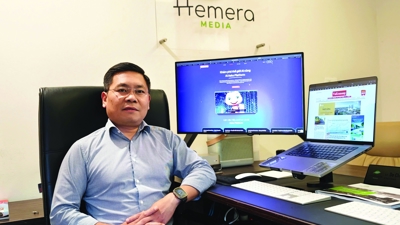World Bank provides $2.75 mln for pandemic response
An estimated 270,000 people will benefit from the support package, of which some 3,500 are from vulnerable groups.

The World Bank and the Institute for Social Development Studies have signed a grant agreement worth $2.75 million from the Japan Social Development Fund to support the “Strengthening capacity to respond to the pandemic at the grassroot level in Vietnam” project. The project aims to strengthen preparedness capacity to respond to pandemics and other medical emergencies in the community in the three provinces of Vinh Phuc, Khanh Hoa, and Long An.
Mr. Rahul Kitchlu, Acting World Bank Country Director for Vietnam, said the grassroots health system is an important force in the fight against the pandemic. “The current Covid-19 pandemic shows some of the difficulties faced by this system and the need to strengthen grassroots capacity, because a country’s Covid-19 response system needs to be effective at all levels,” he added.
The project will focus on strengthening the capacity of commune health stations by providing basic equipment and necessary skills. This will help health workers detect suspected cases early, improve epidemiological investigations, and minimize cross-contamination in medical facilities. In addition, the project will also help ensure the maintenance of essential healthcare services during the pandemic.
The three-year project, to December 2024, also aims to raise awareness and promote sustainable behavioral change in preparedness and response to medical emergencies. The project will pass on information on possible modes of transmission of Covid-19, suspected signs and symptoms, and precautions for healthcare workers and the general public.
An innovative element of the project is a pilot intervention to address the needs of the most vulnerable groups during the pandemic, including urban elderly, ethnic minorities, informal workers, people with HIV/AIDS, drug users, and sex workers. Through a network of volunteers, the project will reach approximately 3,500 people from these groups, providing them with information on Covid-19 detection and prevention measures, and psychological and physical support, including food, medicine, and protective equipment.







